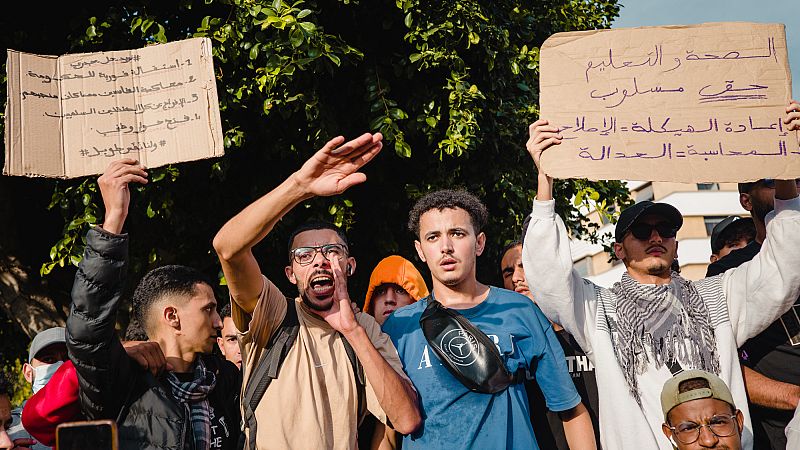PM Akhannouch says government ready for 'dialogue and debate' after week of protests

The Moroccan government says it’s ready to address grievances fueling the youth-led protests that have engulfed the country for days. The announcement comes a day after three people were killed by security forces as rioters tried to storm a police station.
Speaking to a council of ministers on Thursday, Prime Minister Aziz Akhannouch said he was ready for “dialogue and debate within institutions and public spaces.”
Those taking part in the so-called Gen-Z protests accuse the government of widespread corruption.
“Politicians keep asking people to control themselves, to be patient, to make sacrifices, to act as good citizens and love their country, but they don’t do any of this themselves," one protester said on Thursday. "They see the country boiling, yet they haven’t made a single public statement. At least say something, even if it’s just a lie.”
Pointing to new stadiums under construction or renovation across the country, protesters chant ‘The stadiums are here, where are the hospitals?’. They accuse authorities of prioritising spending on World Cup preparations over health and education. The recent deaths of eight women in public hospital in Agadir have become a rallying cry against the decline of Morocco’s health system.
“Today we are here to say that the authorities and the government must address this issue responsibly and with seriousness," another protester said. "We no longer have time to waste allowing public services to remain weak or giving priority to the private sector over the public good. We see the state spending money, but it is private interests that profit from it.”
Since they started on Saturday, the protests have escalated and become more destructive, particularly in cities far from where development efforts have been concentrated. Local outlets and eye-witness footage show protesters hurling rocks and setting vehicles ablaze in cities and towns in the country's east and south.
Protest organisers have called for peaceful demonstrations and blasted the security forces heavy handed tactics. But the protests have escalated and become more destructive, particularly in cities far from where development efforts have been concentrated, including the country’s east and south.
Today

